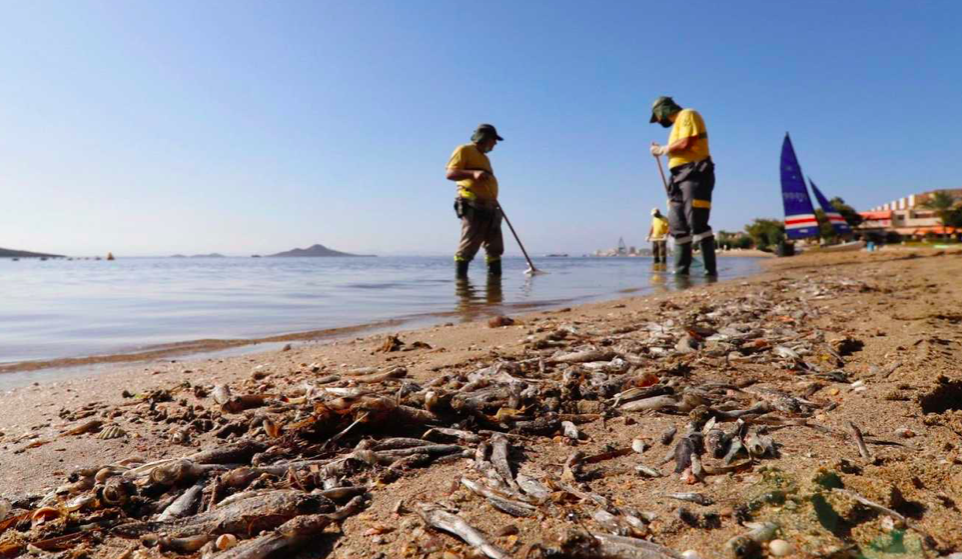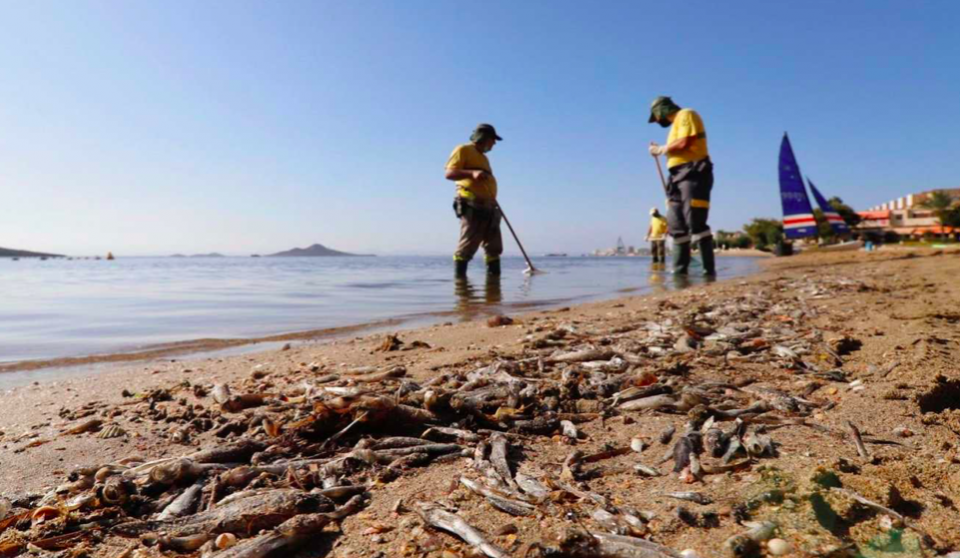Spanish authorities are to expand a ban on harmful fertilisers around a saltwater lagoon in the region of Murcia, known as Mar Menor, where around five tonnes of dead fish and crustaceans have washed ashore over the past 10 days. The ‘paradise lagoon’ is a well-known beauty spot and is popular for vacations.
The regional government of Murcia announced on Wednesday that the use of inorganic nitrogen fertilisers at farms within 1,500 metres of the lagoon would be prohibited. The government estimates that every day around five metric tons of fertiliser runoffs from nearby farms are washed into the lagoon.
Visiting Mar Menor on Wednesday, Spain’s Environment Minister Teresa Ribera accused the regional government of having turned a blind eye to farming irregularities in the Campo de Cartagena, a vast area of intensive agriculture.
‘There is no room for complacency,’ she told reporters, indicating that 8,000 hectares of land lacked ‘adequate irrigation rights’ and were ‘illegally extracting water or using a quantity far above their allocation’.
Ribera welcomed the regional government’s new plan, which includes increasing the financial penalties on offenders. She said that of more than 400 sanctions currently imposed by authorities, some 200 are in court and more than 200 remain unresolved.
The lagoon paradise has been the focus of recent SOS protests to try and stop it slowly dying from agricultural pollution, with many environmental groups, including the World Wildlife Fund (WWF) and Greenpeace, demanding urgent action. ‘The worst-ever wildlife death toll in the Mar Menor is not yet over,’ the WWF tweeted on Wednesday.
On Monday, regional officials said that they had removed around five tonnes of dead fish, but that huge numbers of sea creatures are still dying. Images have been shared on social media of dying fish forcing their heads above the surface of the lagoon, gasping for oxygen alongside baskets piled high with countless dead creatures.
‘I haven’t been able to swim here for three years with this horrible stench,’ a woman on the beach told Spain’s RTVE public television.

The 135 sq km saltwater lagoon is separated from the Mediterranean by a 22 km sandbar. For years, runoff water loaded with nitrates has entered the lagoon causing a vast bloom of algae which, as it dies and decomposes, decreases oxygen levels in the depths. Known as eutrophication, the phenomenon is an environmental hazard that causes aquatic ecosystems to collapse due to a lack of oxygen.
The mid-August heatwave has not helped Mar Menor’s sealife. According to Spain’s Institute of Oceanography, eutrophication ‘reduces its capacity to resist disruptions like those caused by the thermal stress of a heatwave’.
Sign up for the FREE Weekly Newsletter from Spain in English.
Please support Spain in English with a donation.
Click here to get your business activity or services listed on our DIRECTORY.
Click here for further details on how to ADVERTISE with us.




1 comment
The headline says that “Spain” is tightening the rules. The only action named in the article is by the regional government in the province of Murcia. The ruling is purely local, specifying an area immediately surrounding the Mar Menor. An accurate headline would have said that Murcia is tightening the rules.